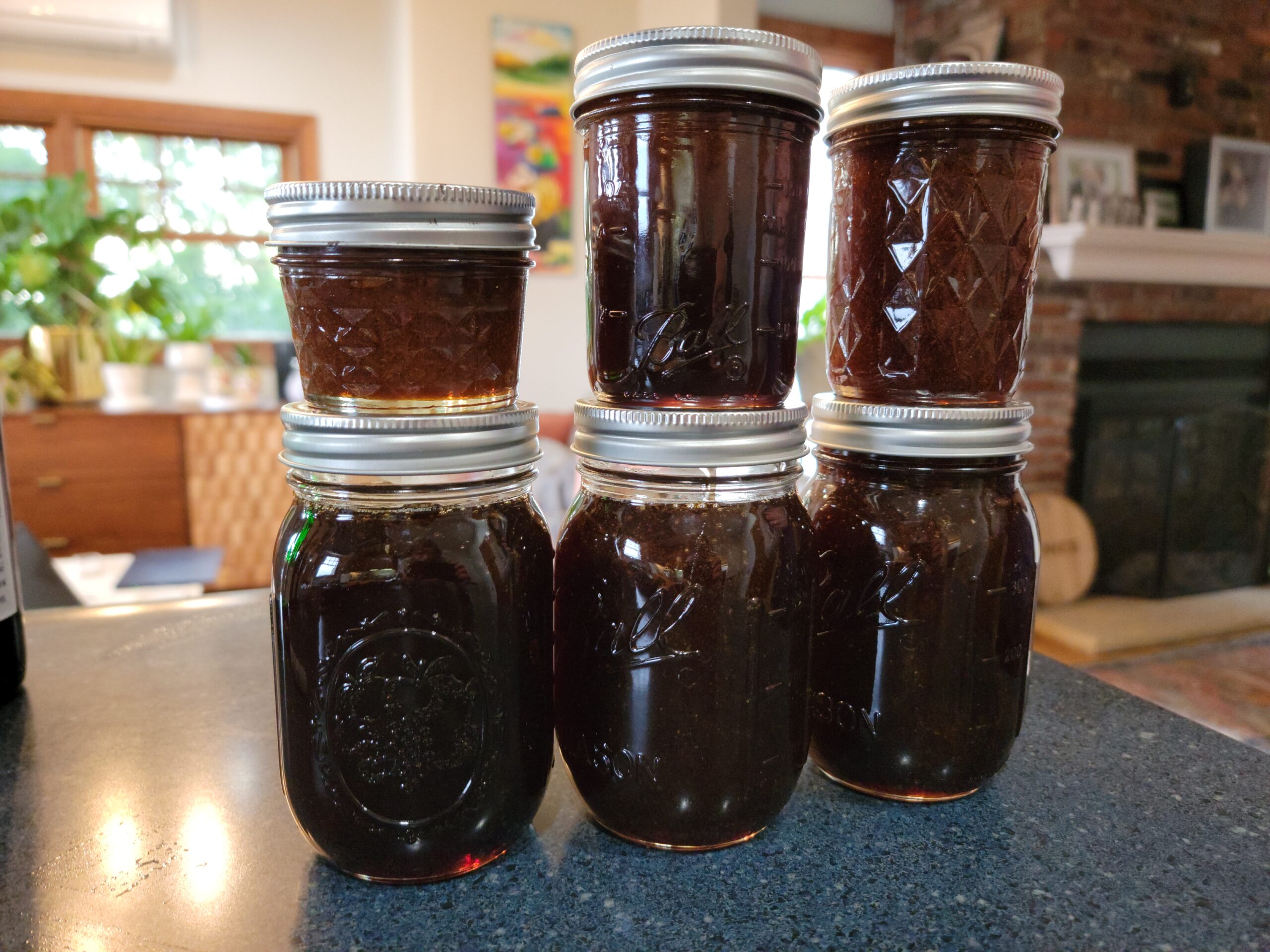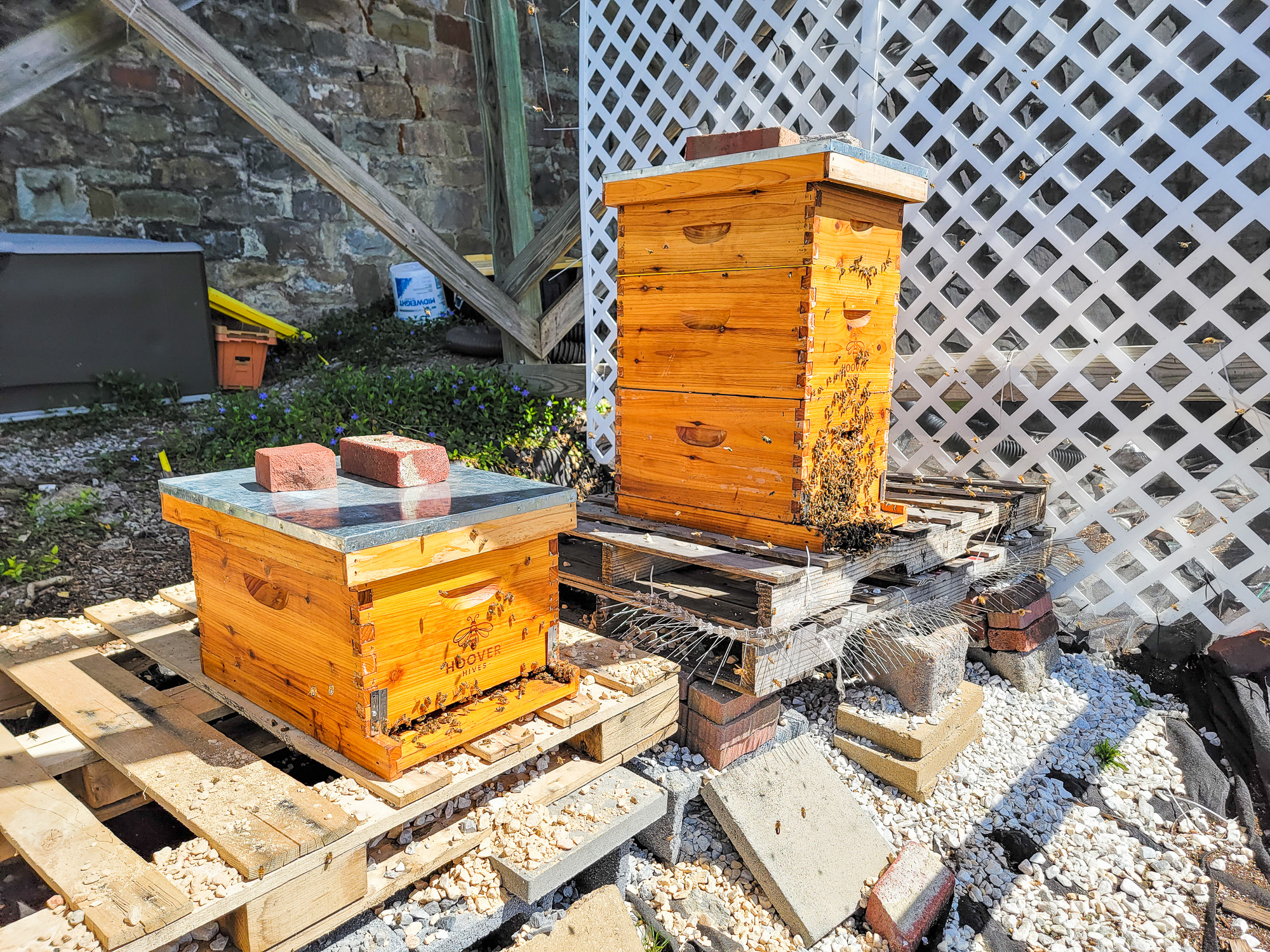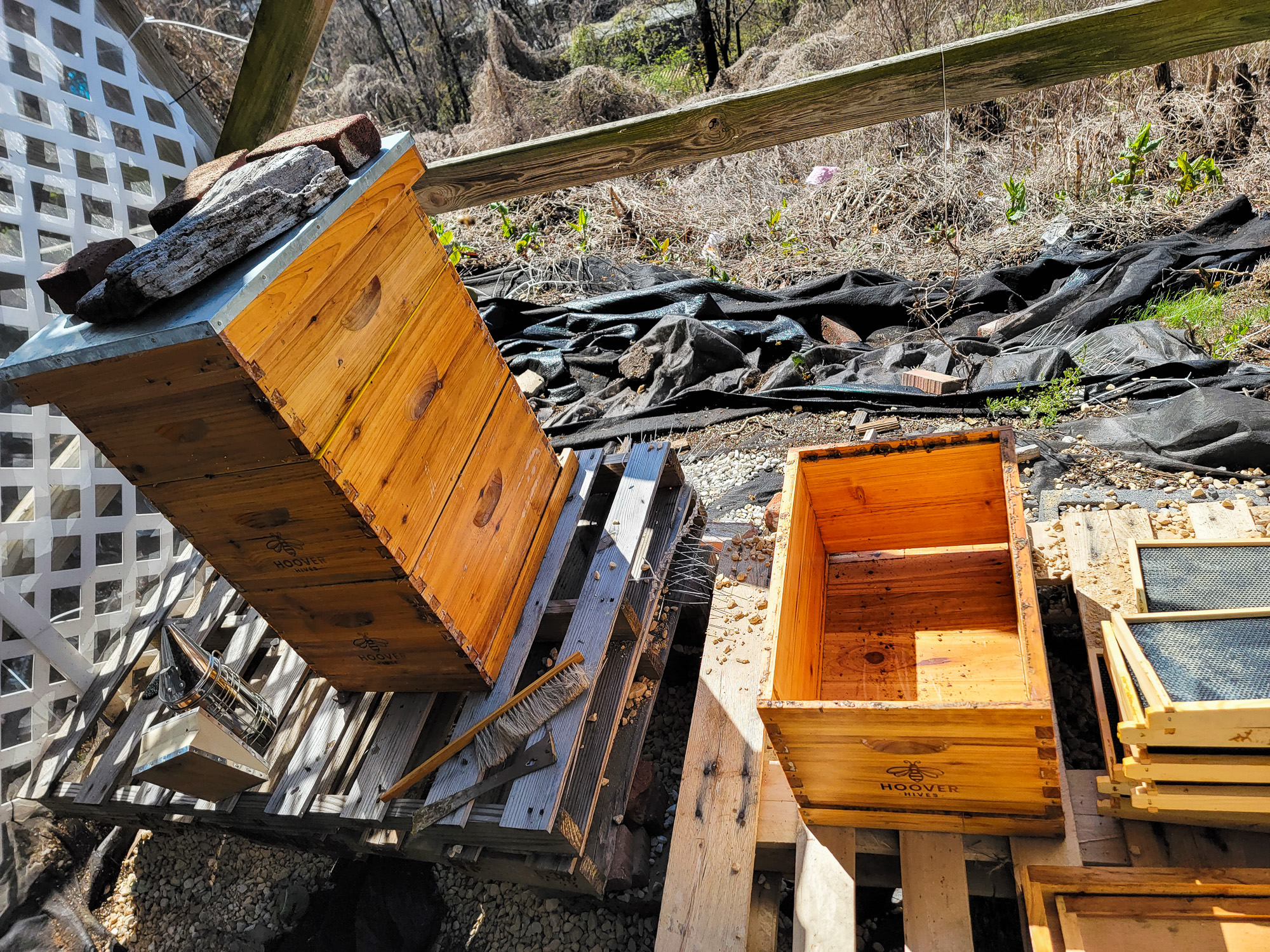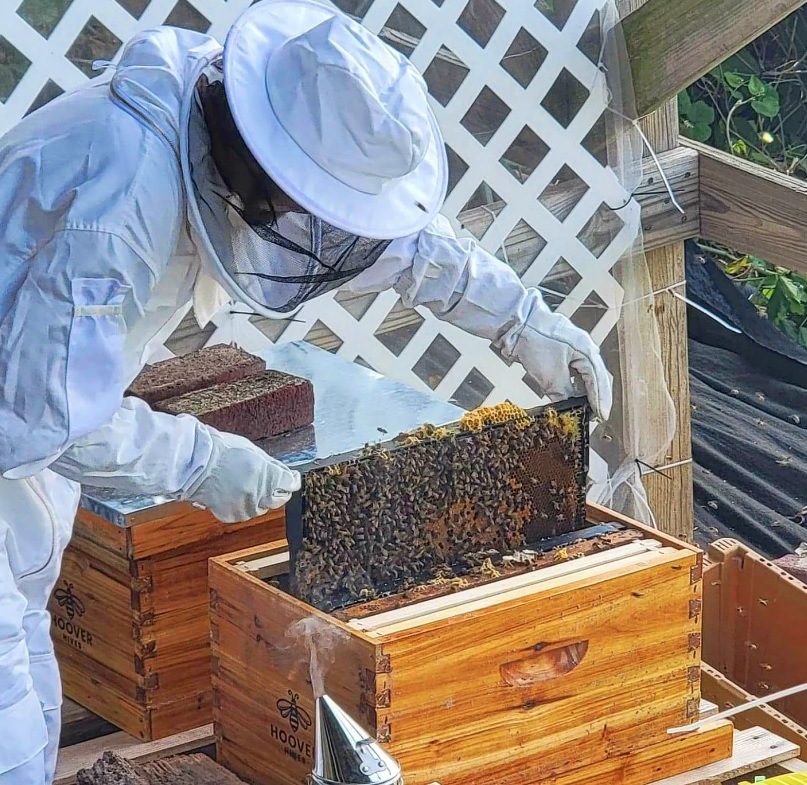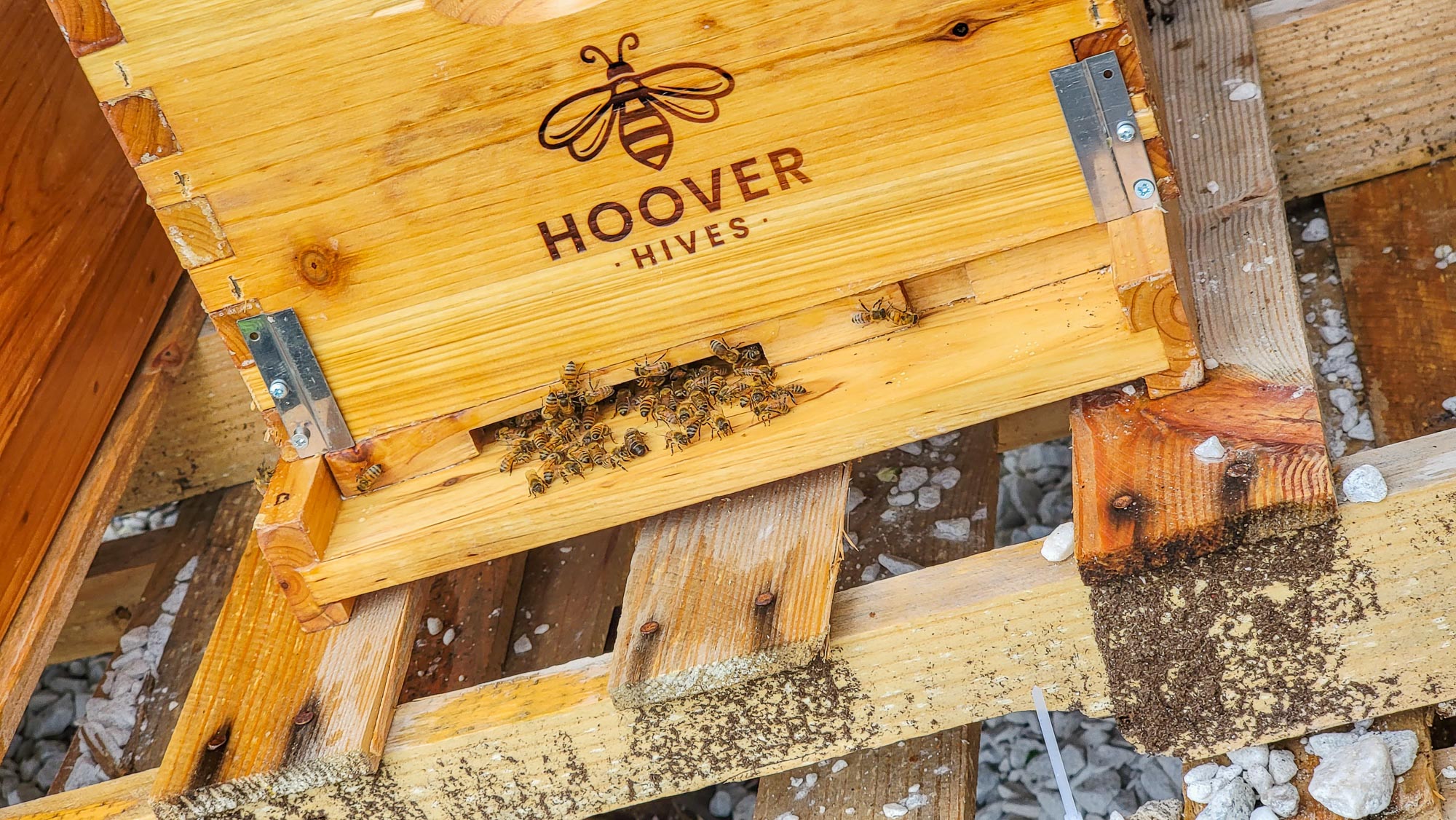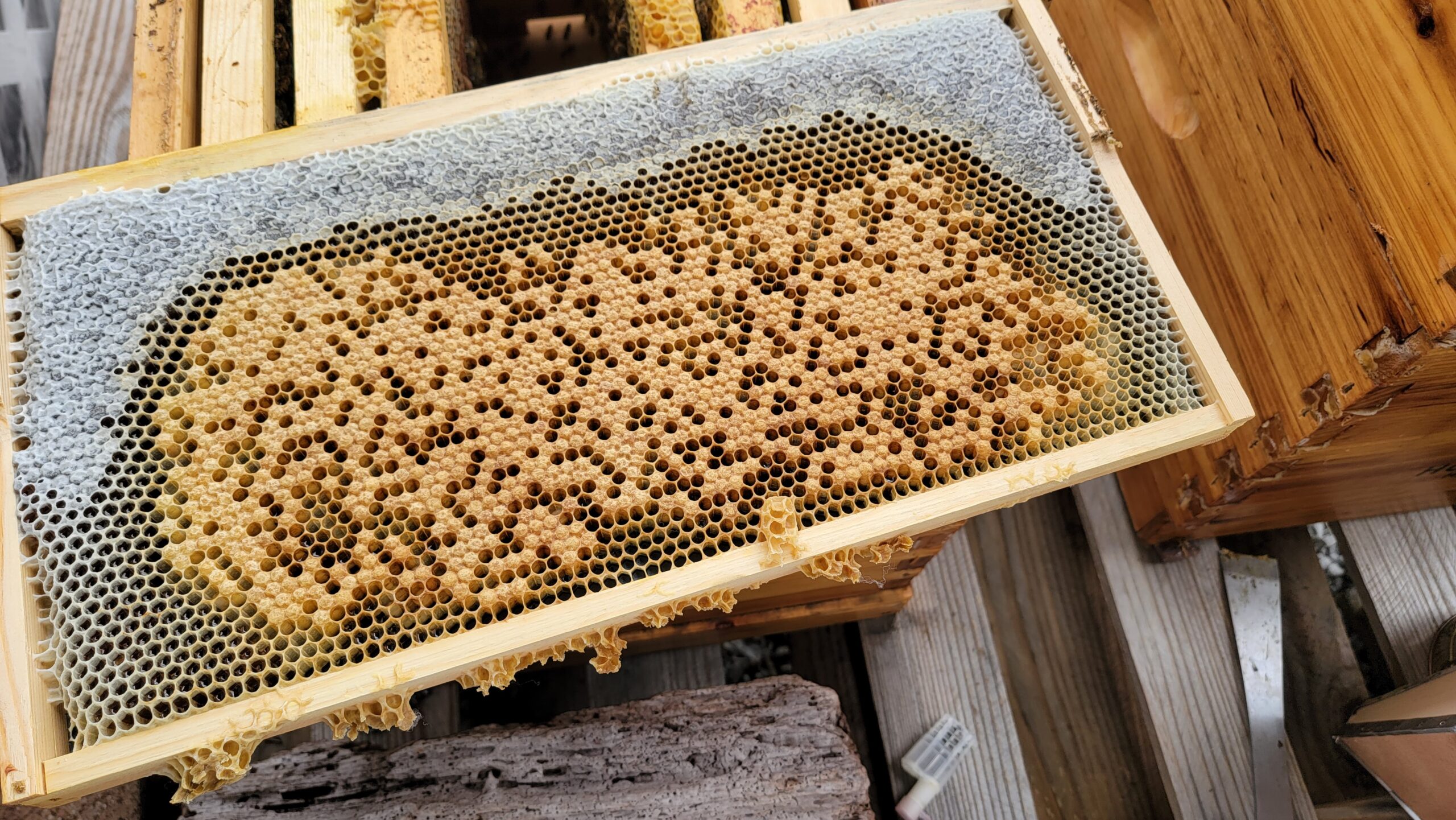In my third year of beekeeping, I thought I was set for a good harvest in early summer.
Two of my bee hives were entering year three. The other two were entering year two. Most of the brood chambers were fully loaded with larva and honey, and my empty supers were on and ready to be drawn and filled out. My mistakes from the previous year seemed to correct themselves and we were in a good position to start the year strong.
I let the bees alone for a bit of time during the nectar flow, came back to check on them later, and I had a problem- the bees were not touching my supers!
As it turns out, this is a common problem, and there are many reasons (and potential solutions) for why your bees are not drawing out supers. So let's talk about what we tried to get them into the chamber we harvest honey from!


